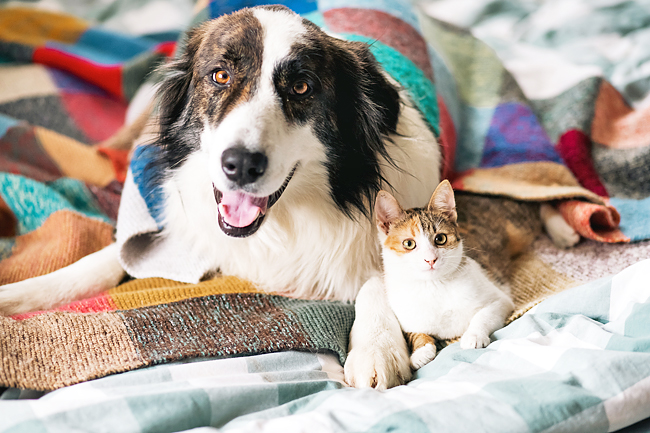THE WASHINGTON POST – They are sleeker, more understated, and rarely as desperate for humans’ attention as their canine counterparts. But, according to a new study, many cats share a trait more frequently associated with pet dogs: They play fetch.
The peer-reviewed study, published last Thursday, dispels any lingering myth that cats do not know how to retrieve objects for their owners, said its authors, who based their findings on a survey of the owners of 1,154 cats that played fetch on every continent except Antarctica.
Some cats can and do play fetch, they found, although it depended on the feline’s individual traits and the bond shared with its owner.
“It was more common than people were probably expecting, and even I was expecting,” an animal psychologist at the University of Sussex and an author of the study, Jemma Forman, said in an interview. The authors of the study, published in the Scientific Reports journal, said they believe it is the most extensive conducted to date on this specific behaviour among cats.
The authors found that the vast majority of the domesticated cats surveyed – 94 per cent – were not trained to play fetch but did so spontaneously. Most owners first noticed their cats fetching within the animal’s first year of life. Owners most frequently reported seven months as the age cats began fetching.
The study, limited to cats whose owners already reported fetching, did not assess how prevalent the behaviour was among the general cat population. While many cats do fetch, Forman suggested that more research was needed to determine how common it was more generally. A cat’s breed was not a barrier to its ability to fetch, the study found, although Siamese cats were particularly well represented in the sample.
It is also not yet clear if cats fetch for the same reason as dogs, who enjoy the bonding reward from their owners, the study said. It may simply be because cats are fascinated by the object, perhaps because it reminds them of prey. “We’re not quite sure whether it would be a social purpose, or that object-playing purpose in cats,” Forman said.
“Some humans might prefer to play football and some like to play golf. Some cats just prefer to play fetch,” added co-author Elizabeth Renner, a psychologist at Northumbria University. In this way, fetching in cats was akin to a personality trait found in humans, she said.
Most critically, cats must have the right personality or temperament, and be bonded with an owner who is receptive to their needs, Forman suggested.
“Give it a try, but don’t be disheartened if your cat doesn’t fetch,” Forman said, noting that it was more frequently the feline, rather than its owner, who decided when it was time to play. “It’s a very spontaneous behaviour, maybe even opportunistic,” she said.
In the survey, cats were found to fetch a variety of objects, though feline-specific toys, spherical objects and cosmetics were the most commonly retrieved.
Other owners reported their cats playing fetch with scraps, ring-shaped objects and clothing items.
The authors also found that cats initiated fetching sessions more frequently than their owners, demonstrating their agency and an independent propensity to play. Some 48 per cent of the cats in the study tended to initiate fetch play, compared with 22 per cent of pets whose owners reported initiating more often. The remainder of cats initiated sessions about equally with their owners, according to the study.
“Cats prefer to be in control of their fetching sessions,” said Forman, noting that this reflected a broader tendency shared by cats to maintain a sense of control across all their interactions.
“When they are in control, they enjoy themselves more – so they play more enthusiastically.”
For those wishing to train their cats to fetch, Renner suggested the clicker-training method, which involves making a specific sound when the animal performs a behaviour correctly and then associating it with a reward. When training a cat to perform a sequence of events, like fetching, Renner suggests first focusing on the end of the sequence, before working your way in reverse through the cycle. In other words, begin by rewarding the cat for dropping an object before you, and after creating the positive association, eventually throw it and have them retrieve it.
“If you wanted to train your cat, you could give them lots of social praise, lots of food, lots of treats when they bring the toy back to you,” Forman said. But ultimate success cannot be guaranteed.
“Fetching is a weird one,” she said. “All the stars have to align.” – Leo Sands









